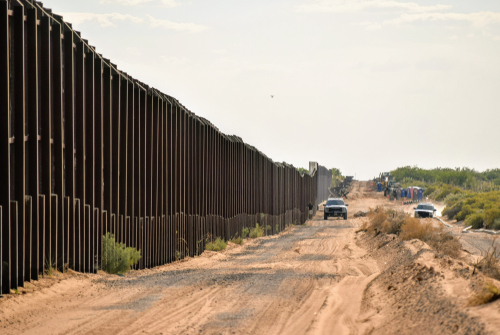
U.S. Rep. Patrick McHenry (R-NC) has joined six North Carolina colleagues in forwarding correspondence to Department of Homeland Security and Customs and Border Patrol officials regarding southern border suspected terrorist encounters.
“The chaos at our southern border has created a humanitarian crisis, fueled the opioid epidemic, and allowed entry to those that wish us harm,” McHenry said via a statement in the wake of the letter to DHS Secretary Alejandro Mayorkas and Customs and Border Patrol Acting Commissioner Troy Miller. “The spike in encounters with individuals who appear on the Terrorist Screening Dataset (TSDS) is alarming and highlights the dangers of the Biden Administration’s open border policy. We need to know why this information is hidden from public view and what is happening to these suspects after they are apprehended. Our porous border is putting Americans at risk and they deserve to know the truth.”
McHenry signed off on the letter with Reps. Chuck Edwards (R-NC), Richard Hudson (R-NC), David Rouzer (R-NC), Dan Bishop (R-NC), Virginia Foxx (R-NC), and Gregory Murphy (R-NC).
“We write regarding the surge in U.S. Border Patrol (USBP) encounters with individuals who appear on the Terrorist Screening Dataset (TSDS),” the legislators wrote. “According to statistics released from the U.S. Customs and Border Protection (CBP), the number of encounters has dramatically increased over the last several fiscal years from three in FY20, to 16 in FY21, to 98 in FY22. There are no signs this situation is subsiding, with 82 encounters year-to-date in FY23.”
Within the correspondence the lawmakers seek answers to questions that include to what the agencies attribute the spike in encounters; CBP protocol for individuals on the TSDS after apprehension; and does DHS have resources dedicated to efforts preventing terrorist organizations attempting to exploit the perceived southern border security weaknesses.




